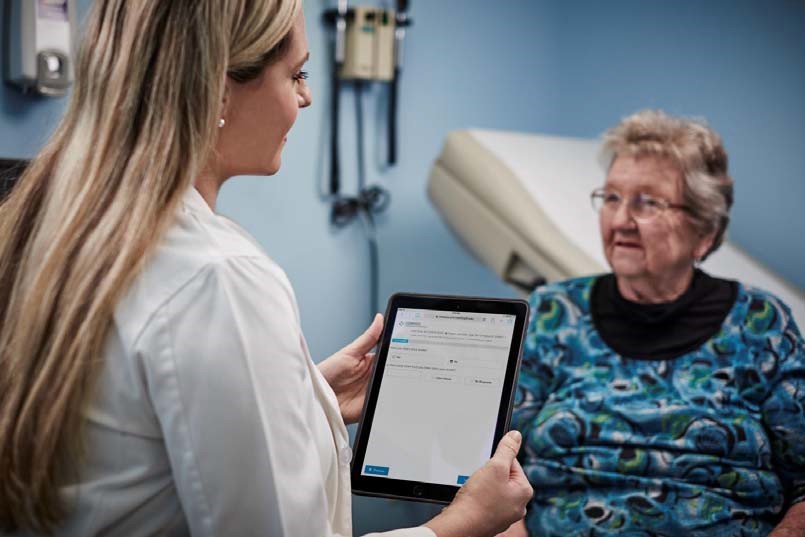A stroke or transient ischemic attack (TIA) is a very stressful event that can leave patients and caregivers feeling overwhelmed. The COMPASS Study provides educational materials for patients and caregivers as well as resources to help them find their way forward.
Quick Links
- Community Resource Directory – directory of resources to help stroke survivors and their caregivers in North Carolina
- Resources for Patients and Caregivers – better understand blood pressure, high cholesterol, diabetes and more
- Learn more about Stroke and TIAs

The COMPASS Study was designed to address the critical gap that stoke patients and their caregivers voiced: They need more support, local resources and guidance once they are discharged to home after a stroke.
The COMPASS Study sought to address this critical gap by the development of a comprehensive post-acute care program that focused on managing risk factors to prevent a second stroke, managing medication, promoting physical activity and preventing falls. The study also referred patients to rehabilitation services and connected patients and caregivers with community resources.
 Read more about the COMPASS intervention to comprehensively assess patients after their stroke in the overview. Each patient will receive an individualized care plan that is tailored to the patient's needs and preferences for care and will support the patient and family to implement recommended services.
Read more about the COMPASS intervention to comprehensively assess patients after their stroke in the overview. Each patient will receive an individualized care plan that is tailored to the patient's needs and preferences for care and will support the patient and family to implement recommended services.
Funding from the Patient-Centered Outcomes Research Institute (PCORI) Award (PCS-1403-14532). All statements are solely those of the presenters and do not necessarily represent the views of PCORI or its Board of Governors or Methodology Committee.
